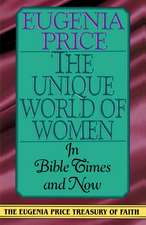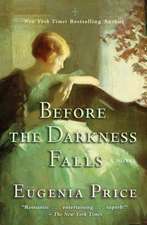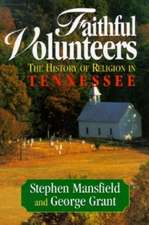Margaret's Story: Florida Trilogy, cartea 03
Autor Eugenia Priceen Limba Engleză Paperback – 31 mar 2001
The novel of one woman's love for her family in frightening new times as her homeland is attacked by Seminoles and plundered by Yankees.
| Toate formatele și edițiile | Preț | Express |
|---|---|---|
| Paperback (1) | 122.24 lei 3-5 săpt. | |
| Turner – 3 dec 2012 | 122.24 lei 3-5 săpt. | |
| Hardback (1) | 218.18 lei 3-5 săpt. | |
| Turner – 3 dec 2012 | 218.18 lei 3-5 săpt. |
Preț: 103.08 lei
Nou
Puncte Express: 155
Preț estimativ în valută:
19.72€ • 20.65$ • 16.32£
19.72€ • 20.65$ • 16.32£
Carte indisponibilă temporar
Doresc să fiu notificat când acest titlu va fi disponibil:
Se trimite...
Preluare comenzi: 021 569.72.76
Specificații
ISBN-13: 9781577362142
ISBN-10: 1577362144
Dimensiuni: 132 x 198 x 33 mm
Greutate: 0.5 kg
Ediția:Eugenia Price C
Editura: Turner Publishing Company
Colecția Turner
Seria Florida Trilogy
ISBN-10: 1577362144
Dimensiuni: 132 x 198 x 33 mm
Greutate: 0.5 kg
Ediția:Eugenia Price C
Editura: Turner Publishing Company
Colecția Turner
Seria Florida Trilogy
Recenzii
“This is a novel even for those who don’t read fiction, a historical drama for those whom history bores.” —Cincinnati Enquirer
“A plot that holds the reader to the end.” —Savannah News
“Ms. Price [has a] knack for recreating a bygone era with such compelling and authentic historic detail.” —The New York Times
“Eugenia Price is a name spoken with affection by millions of readers.” —Publishers Weekly
“Newcomers to Ms. Price's work should soon join her legions of faithful readers.” —Chattanooga Times
“[Price is]” a consummate storyteller of meticulously researched and emotionally moving novels of the South.” —Rave Reviews
“A plot that holds the reader to the end.” —Savannah News
“Ms. Price [has a] knack for recreating a bygone era with such compelling and authentic historic detail.” —The New York Times
“Eugenia Price is a name spoken with affection by millions of readers.” —Publishers Weekly
“Newcomers to Ms. Price's work should soon join her legions of faithful readers.” —Chattanooga Times
“[Price is]” a consummate storyteller of meticulously researched and emotionally moving novels of the South.” —Rave Reviews
Notă biografică
Eugenia Price (1916ߝ1996) was a New York Times bestselling author of 39 books, with over 40 million copies sold. She is best known for her historical romantic antebellum novels.
Extras
For a long moment, as the lean, robed priest from St. Augustine searched for his place in the service for the Burial of the Dead, there was only winter silence around the open grave in the tiny cemetery at Hibernia plantation on the St. Johns. The well- and warmly dressed group of mourners stood nearly motionless, even the children, as though the uniquely vibrant life of Augustina. Cortez Fleming, so suddenly gone just before Christmas in the year 1832, had left them lifeless, too.
A pod of bright crimson seeds from the ancient magnolia, which stood beside the open grave, fell to the ground. Crashed. The familiar sound seemed a crash, so deep was the silence in the cupped clearing that formed the Fleming family plot, hemmed by dense woods, as the mourners—relatives and friends from Fernandina and St. Augustine—were hemmed by the stillness that followed the interruption. The priest cleared his throat and began to chant the ancient Latin phrases.
Nineteen-year-old Margaret Seton, her light, curly hair half hidden by a beaver bonnet tied against the north Florida winter chill, stooped to pick up the brilliant, velvety seed pod which had fallen at her feet.
Mourners turned to look at her, but she was not embarrassed. There was life in that seed pod and she meant to remember life even here in the face of death.
All eyes riveted again on the open grave as Margaret tucked the pod into her muff, wondering how long the priest would drone on. AnEpiscopal priest would at least have read in English so that some comfort might come.
He needs to be comforted, she thought. Major Lewis Fleming needs to understand that priest! Let the others stare into that grave—I can’t
take my eyes off Major Fleming’s tortured face. Strong men seldom faint, but he could. Oh, God, notice him and let someone help him. . . .
Involuntarily, she took a step toward the tall, grieving man. Louisa Fatio, her best friend, slipped her arm through Margaret’s. Louisa, fifteen years older and a head taller, did not glance at Margaret. She merely restrained her without once shifting her own gaze from the cedar coffin still visible in the freshly dug grave.
I can tell that dear Louisa’s worried most about his children, Margaret thought. But it has to be worse for him—for Lewis Fleming, holding a baby daughter in his arms, his eight- and ten-year-old sons pressing hard against him on either side. Lewis Michael Fleming, near Louisa’s age, was to Margaret the most beautiful man she’d ever seen, including her own father, Charles Seton. Her handsome father was standing now beside her mother, Matilda, both staring down into the hole as though their fixed gaze could reveal just once more the fine Spanish features, the flashing, laughing eyes of Augustina Cortez Fleming, the woman Lewis loved. The young woman whom everyone, including Margaret, had considered such a perfect mate for gentle, strong, reserved Lewis Fleming.
Margaret pulled her heavy, dark blue woolen mantle closer about her, allowed her slender back to rest for a moment against the gray trunk of the big magnolia and prayed fervently for Lewis Fleming. Help him, Lord! This minute, help him stand there until it’s over. Help him when he’ll have to walk away and leave her lying in the cold. Help him learn to live without her. Lord, I know how much You must love him. I’ve adored every glimpse of Major Fleming since the day he first walked with that quiet confidence through our front door at Fernandina beside my father—dwarfing even Papa—as he bent to shake the hand of a small girl whose eyes must have shone with admiration even then.
Her dark eyes still on Lewis’s face, Margaret marveled that throughout the long service he had scarcely moved a muscle, had not shifted his gaze from the oblong hole in the sandy earth, as though memorizing even the grain in the wood of the coffin that held Augustina’s body. Only once had he forced a long, sob-broken breath into his lungs, then nothing.
At last, the droning ended and the gravedigger reached for his shovel.
“Papa?” The voice of eight-year-old Louis Isador was thin, frightened. “Papa!”
Lewis Fleming tightened his arm around the small boy, but said nothing as the first shovelful hit the wooden lid.
Margaret heard Louisa sob once, softly. Then the silence closed in again, so dense it seemed to hold even the gravedigger motionless. A wren shouted nearby and the shovel scraped up another load of dirt. The digger held it poised in midair as though waiting for the answering wren call. It came from somewhere over by the river. The second shovelful was emptied and again the gravedigger waited. Pity for the lone man with his three motherless children seemed to numb him, too.
When at last another and then another spade of dirt fell heavily into the open grave, Lewis Fleming buried his face in the thick blanket protecting baby Augustina and wept. On impulse, Margaret again started toward him. Louisa pulled her back.
“Wait,” Louisa whispered. “Only God can help him now.”
A pod of bright crimson seeds from the ancient magnolia, which stood beside the open grave, fell to the ground. Crashed. The familiar sound seemed a crash, so deep was the silence in the cupped clearing that formed the Fleming family plot, hemmed by dense woods, as the mourners—relatives and friends from Fernandina and St. Augustine—were hemmed by the stillness that followed the interruption. The priest cleared his throat and began to chant the ancient Latin phrases.
Nineteen-year-old Margaret Seton, her light, curly hair half hidden by a beaver bonnet tied against the north Florida winter chill, stooped to pick up the brilliant, velvety seed pod which had fallen at her feet.
Mourners turned to look at her, but she was not embarrassed. There was life in that seed pod and she meant to remember life even here in the face of death.
All eyes riveted again on the open grave as Margaret tucked the pod into her muff, wondering how long the priest would drone on. AnEpiscopal priest would at least have read in English so that some comfort might come.
He needs to be comforted, she thought. Major Lewis Fleming needs to understand that priest! Let the others stare into that grave—I can’t
take my eyes off Major Fleming’s tortured face. Strong men seldom faint, but he could. Oh, God, notice him and let someone help him. . . .
Involuntarily, she took a step toward the tall, grieving man. Louisa Fatio, her best friend, slipped her arm through Margaret’s. Louisa, fifteen years older and a head taller, did not glance at Margaret. She merely restrained her without once shifting her own gaze from the cedar coffin still visible in the freshly dug grave.
I can tell that dear Louisa’s worried most about his children, Margaret thought. But it has to be worse for him—for Lewis Fleming, holding a baby daughter in his arms, his eight- and ten-year-old sons pressing hard against him on either side. Lewis Michael Fleming, near Louisa’s age, was to Margaret the most beautiful man she’d ever seen, including her own father, Charles Seton. Her handsome father was standing now beside her mother, Matilda, both staring down into the hole as though their fixed gaze could reveal just once more the fine Spanish features, the flashing, laughing eyes of Augustina Cortez Fleming, the woman Lewis loved. The young woman whom everyone, including Margaret, had considered such a perfect mate for gentle, strong, reserved Lewis Fleming.
Margaret pulled her heavy, dark blue woolen mantle closer about her, allowed her slender back to rest for a moment against the gray trunk of the big magnolia and prayed fervently for Lewis Fleming. Help him, Lord! This minute, help him stand there until it’s over. Help him when he’ll have to walk away and leave her lying in the cold. Help him learn to live without her. Lord, I know how much You must love him. I’ve adored every glimpse of Major Fleming since the day he first walked with that quiet confidence through our front door at Fernandina beside my father—dwarfing even Papa—as he bent to shake the hand of a small girl whose eyes must have shone with admiration even then.
Her dark eyes still on Lewis’s face, Margaret marveled that throughout the long service he had scarcely moved a muscle, had not shifted his gaze from the oblong hole in the sandy earth, as though memorizing even the grain in the wood of the coffin that held Augustina’s body. Only once had he forced a long, sob-broken breath into his lungs, then nothing.
At last, the droning ended and the gravedigger reached for his shovel.
“Papa?” The voice of eight-year-old Louis Isador was thin, frightened. “Papa!”
Lewis Fleming tightened his arm around the small boy, but said nothing as the first shovelful hit the wooden lid.
Margaret heard Louisa sob once, softly. Then the silence closed in again, so dense it seemed to hold even the gravedigger motionless. A wren shouted nearby and the shovel scraped up another load of dirt. The digger held it poised in midair as though waiting for the answering wren call. It came from somewhere over by the river. The second shovelful was emptied and again the gravedigger waited. Pity for the lone man with his three motherless children seemed to numb him, too.
When at last another and then another spade of dirt fell heavily into the open grave, Lewis Fleming buried his face in the thick blanket protecting baby Augustina and wept. On impulse, Margaret again started toward him. Louisa pulled her back.
“Wait,” Louisa whispered. “Only God can help him now.”
Textul de pe ultima copertă
In this powerful crescendo to Eugenia Price’s acclaimed Florida Trilogy, young and headstrong Margaret Seton vows to win the heart of grieving widower Lewis Fleming. Their resulting love story plays out against dangerous and tumultuous events while spanning almost half a century. Experiencing Seminole uprisings, Florida’s burgeoning statehood, the Civil War, and the challenges of Reconstruction, Margaret holds her devoted family together with love, strength, and faith. Even the tragedy of seeing their beloved plantation on the St. John’s River, Hibernia, destroyed twice, and having sons and husband pitted against each other in war cannot break Margaret’s spirit or shake her faith. Her unconditional love, unflagging conviction in God, and contagious hope impact her descendants, a young state, and indeed, a nation.
Descriere
Descriere de la o altă ediție sau format:
In this powerful crescendo to Eugenia Price’s acclaimed Florida Trilogy, young and headstrong Margaret Seton vows to win the heart of grieving widower Lewis Fleming.
Margaret’s Story tells of the heartwarming relationship between the bold Margaret and her beloved Lewis, and how it plays out against dangerous and tumultuous events while spanning almost half a century. Experiencing Seminole uprisings, Florida’s burgeoning statehood, the Civil War, and the challenges of Reconstruction, Margaret holds her devoted family together with love, strength, and faith. Even the tragedy of seeing their beloved plantation on the St. John’s River, Hibernia, destroyed twice, and having sons and husband pitted against each other in war cannot break Margaret’s spirit or shake her faith. Her unconditional love, unflagging conviction in God, and contagious hope impact her descendants, a young state, and indeed a nation.
Margaret’s Story tells of the heartwarming relationship between the bold Margaret and her beloved Lewis, and how it plays out against dangerous and tumultuous events while spanning almost half a century. Experiencing Seminole uprisings, Florida’s burgeoning statehood, the Civil War, and the challenges of Reconstruction, Margaret holds her devoted family together with love, strength, and faith. Even the tragedy of seeing their beloved plantation on the St. John’s River, Hibernia, destroyed twice, and having sons and husband pitted against each other in war cannot break Margaret’s spirit or shake her faith. Her unconditional love, unflagging conviction in God, and contagious hope impact her descendants, a young state, and indeed a nation.






























